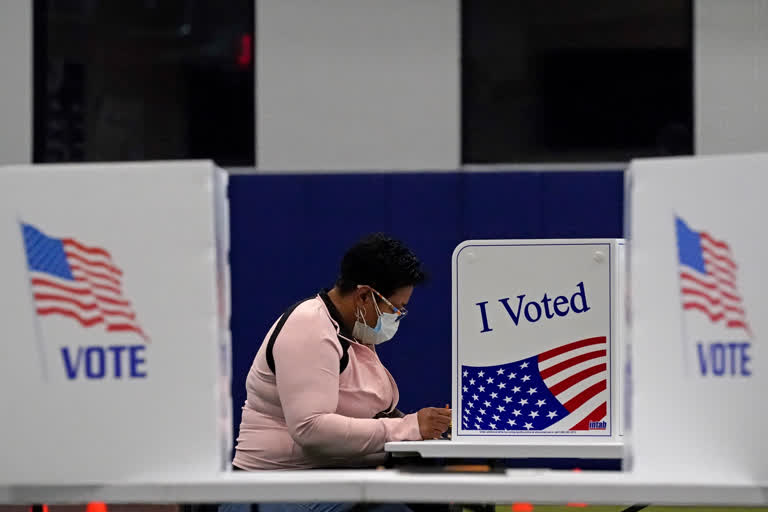New York: Presidential elections can be revealing moments that convey the wishes of the American people to the next wave of elected officials. So far, the big reveal in the contest between President Donald Trump and former Vice President Joe Biden is the extent of the cavernous divide between Republican and Democratic America, one that defines the nation, no matter which candidate ultimately wins.
Voters from both parties turned out in droves to pick the next president, but as they did so, they found little agreement about what that president should do. Democrats and Republicans prioritized different issues, lived in different communities and even voted on different kinds of ballots.
Whoever emerges as the winner, that division ensures that the next president will face significant gridlock in Congress, skepticism about the integrity of the vote and an agitated electorate increasingly divided by race, education and geography. Even the vote count itself threatens to further split Americans.
Two days after polls closed, neither Trump nor Biden has earned the 270 electoral votes needed to win the presidency. The Republican incumbent is encouraging his supporters to protest outside counting locations still sorting through mail ballots — the method of voting preferred by many Democrats — while pursuing an aggressive legal strategy that could lead to further delays.
“Except for the Civil War, I don’t think we’ve lived through any time as perilous as this in terms of the divisions,” said historian Barbara Perry, the director of presidential studies at the University of Virginia’s Miller Center.
Even after the 2000 election, when the Supreme Court ultimately intervened on Republican George W. Bush’s behalf, Democrat Al Gore quickly conceded and congressional leaders found areas of agreement on Capitol Hill.
“To come out of something like this, you need to have a leader who can lead and willing followers,” Perry said. “I just don’t see willing followers on either side.”
The yawning divides will threaten the next president’s ability to manage multiple crises: Daily coronavirus infections set a record this week, the economy is struggling to recover from the pandemic and many Americans are pressing for a reckoning on racial injustices.
Read more:Explainer: What effect could lawsuits have on the election?
Trump and Biden voters, however, express strikingly different views on those challenges, according to AP VoteCast, a broad survey of the electorate. Biden voters overwhelming say they want the federal government to prioritize limiting the spread of the virus, even if that means further damage to the economy. But most Trump voters preferred an approach that focused on the economy.
About half of Trump voters also called the economy and jobs the top issue facing the nation, while only 1 in 10 Biden voters named it most important.
On race and justice issues, Biden voters almost universally said racism is a serious problem in U.S. society and in policing. But only a slim majority of Trump voters, who are overwhelming white, called racism a serious problem.
Biden has tried to bridge this gap, often appealing to a sense of national unity and the “soul” of America. Trump often casts himself as a defender of his voters. He has threatened to withhold pandemic-related aid from states run by Democratic governors and disparaged cities run by Democrats.
